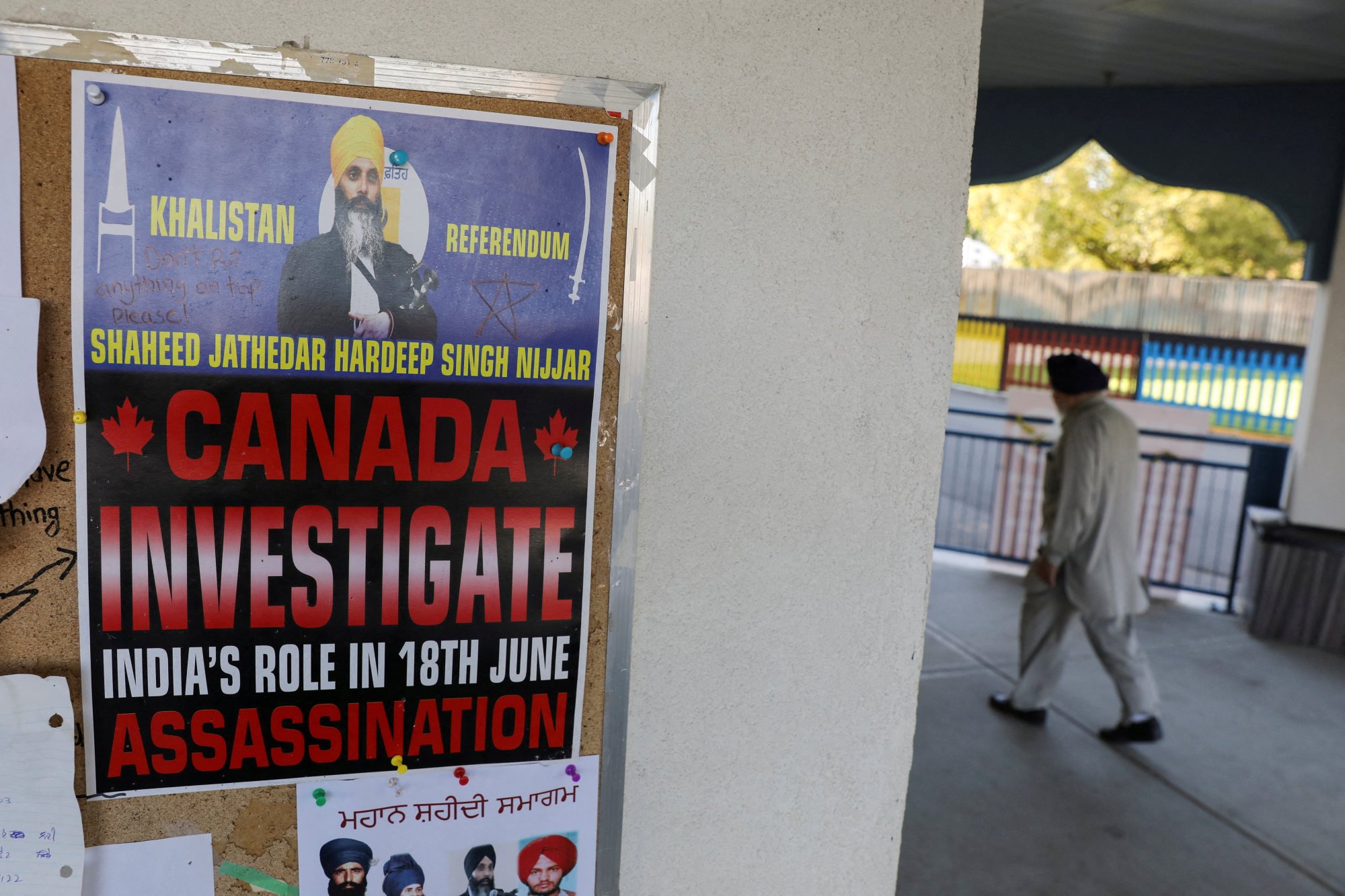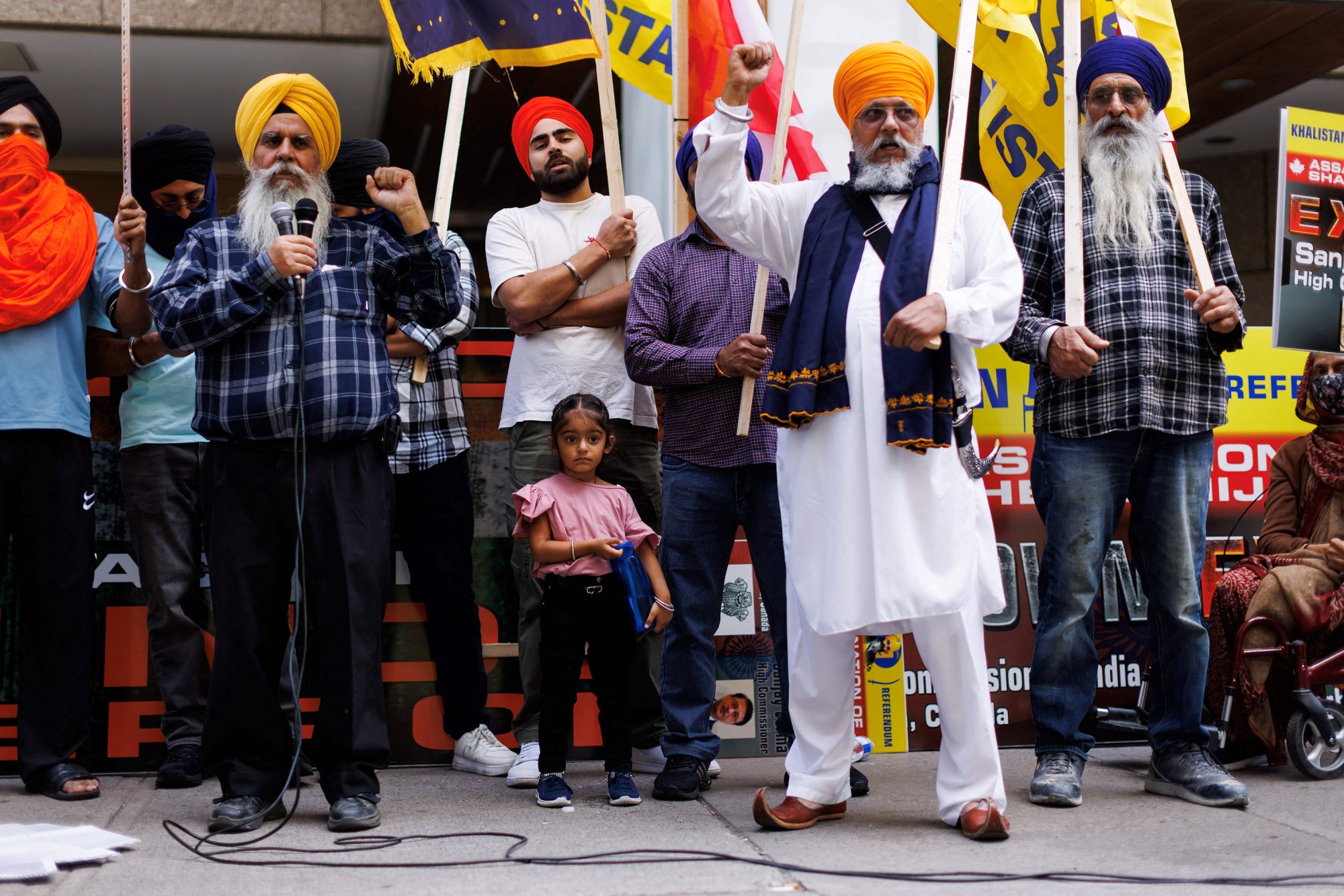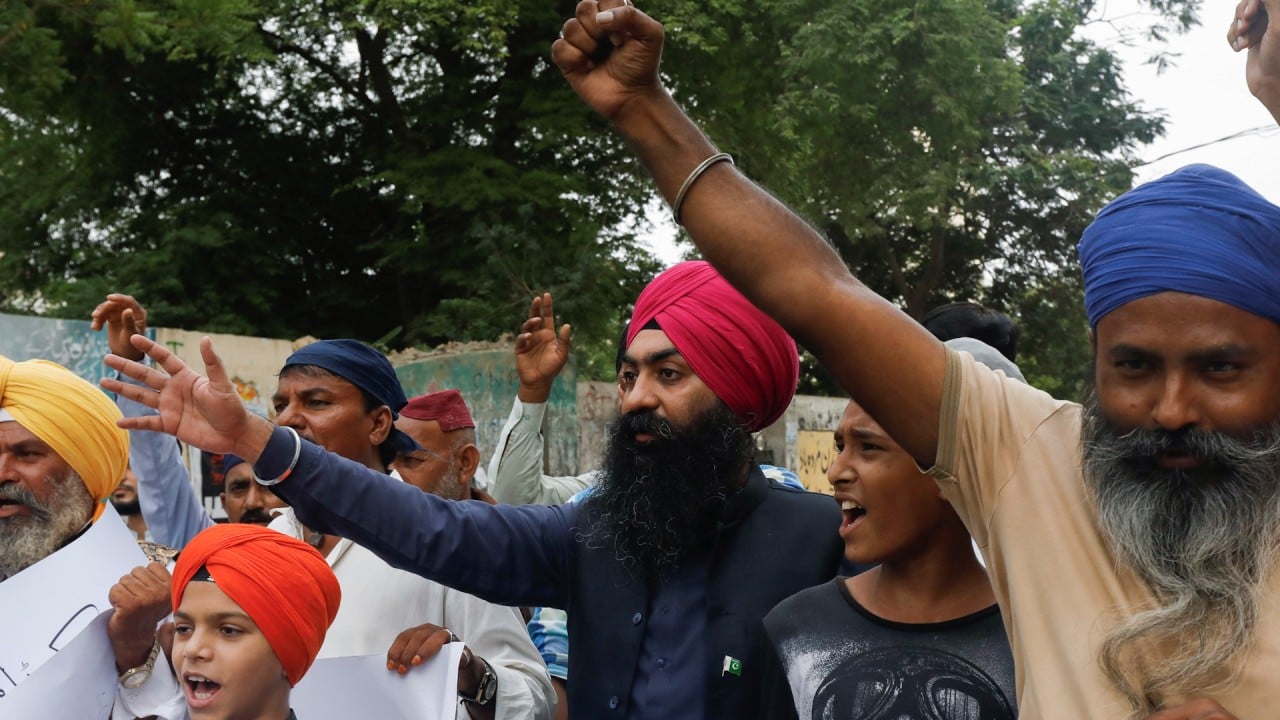
India-Canada row challenges US resolve in keeping ‘united front’ in region, analysts say
- The US faces a delicate balancing act as it seeks to avoid alienating India over the dispute at a time of growing Chinese influence in the region
- The row also serves as a ‘warning’ India may not always accept the ‘shared values’ as defined by the US and its allies, analysts add
Reports on Tuesday said India asked Canada to remove 41 of its 62 diplomats from the country.
India tells Canada to remove 41 diplomats amid row over Sikh separatist’s death
Marc Lanteigne, an associate professor of political science and international relations at the University of Tromsø in Norway, said the row reflected the challenges the US faced in establishing a “true united front” in the region.
Although the US views India as an essential partner in security, Lanteigne said the diplomatic feud had also placed an additional spotlight on international concerns about India’s human rights issues and recent moves towards illiberal democracy.
In a March report, the US-based Freedom House think tank ranked the world’s largest democracy just 66 out of 100 this year, placing India between Hungary and Lesotho.

Daniel Markey, a senior adviser on South Asia at the US Institute of Peace, said the US would like to see India and Canada settle the dispute quietly.
Even if Canada’s claims were supported by intelligence-backed evidence, Markey said that by encouraging India to cooperate with the investigation, Washington was giving Ottawa and Delhi a “face-saving way” out that would show both sides were “willing to adhere to a rules-based order”.
Markey noted that the row should be viewed by Washington and its allies as “a warning”, especially about how India and its leaders interpret international rules and norms.
“India’s leaders do not accept precisely the same rules and may not always see eye to eye when it comes to ‘shared values’ as defined by the US and its allies,” he said.
Jagannath Panda, head of the Stockholm Center for South Asian and Indo-Pacific Affairs at the Institute for Security and Development Affairs in Sweden, said India-Canada ties were “solid and people-centric” despite the row and any decline was temporary.
“The presence of the Indian diaspora in Canada will come into play and rebuild this important relationship” that is critical to Indo-Pacific security, Jagannath said.
He noted that neither the Quad security bloc – which includes India, Australia, Japan and the US – nor the US concept of Indo-Pacific would be affected by the dispute.
“India is needed more by the Western powers at present than before and Canada would like to solidify relations with India for its future outreach in the Indo-Pacific,” Jagannath said.
India-Canada ties going ‘south rapidly’ amid row over killing of Sikh separatist
Under Washington’s Indo-Pacific strategy – widely seen as a blueprint to counter Beijing’s growing influence – the US and its allies aim to advance freedom and openness while offering “autonomy and options”.
In Canada’s Indo-Pacific strategy published last year, a section on India emphasised the Asian giant’s “strategic importance and leadership” which Ottawa said was expected to increase regionally and globally.
As for the concept of “shared values”, Jagannath noted that “values and interests are the most contested concepts in international politics”.

Ian Hall, professor of international relations at the Griffith Asia Institute in Australia’s Griffith University, said the dispute had unsettled some in the region, with Canberra earlier expressing “deep concerns”.
Hall said “it isn’t clear” when the incident would end, after India rejected Trudeau’s accusation and with Canada not having provided evidence as yet of Delhi’s official involvement.
“Regardless of what happens with the Nijjar case, the US and others will have to take India’s security concerns more seriously, given their potential to harm bilateral ties,” Hall said.
Khalistan is the name of the proposed state envisioned by some Sikhs, incorporating the Indian state of Punjab and other Punjabi-speaking areas of northern India to establish a Sikh nation. The movement, which gained traction in the 1970s and early 80s, regained momentum among the Sikh diaspora in recent years.

Rafiq Dossani, director of the Rand Center for Asia Pacific Policy, said the West’s response had been quite muted, suggesting India’s position and influence in the democratic camp would not be diluted.
“Imagine the furore that would have resulted had China done this,” Dossani said.
However, Dossani warned that the challenge to sovereignty from the killing had to be publicly addressed, otherwise “domestic politics in Canada would have stepped in and hurt Trudeau politically, and possibly also the other Five Eyes leaders”.
Apart from Canada, other members in the Five Eyes grouping include Australia, Britain, New Zealand and the US.
Dossani noted the irony of discovering Nijjar’s killing – a criminal action – via another illegal act, that of intercepting classified messages of a partner state. India’s involvement was first detected through the interception of exchanges between Indian diplomats by Canada and the US.
“No one is commenting on the first illegal action,” he added.


